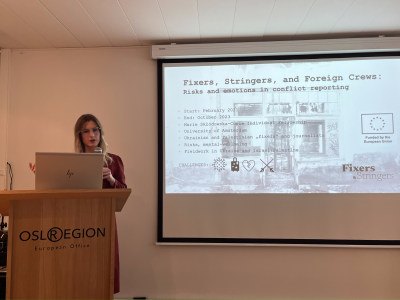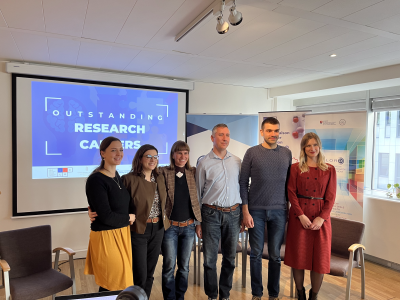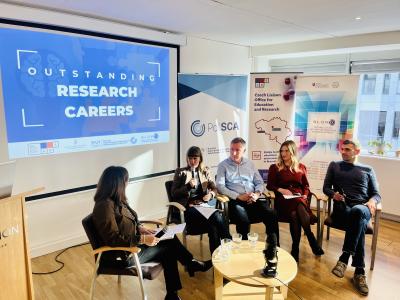As researchers, we are supposed to work almost all the time, like fridges or Wi-Fi. We are expected to constantly circulate, like viruses, and we are evaluated based on our performance(s), like dolphins. As much as we would like to be dolphins, we are human beings. In the academic world, where people are treated like „human capital“ or „brains,“ the fact that researchers are human beings sounds like a highly original theory.
The human condition of researchers comes to the fore vis-à-vis the many professional and personal challenges linked to academic careers - all the more so when these careers are international. In practice, the academic newspeak and grant-writing buzzwords – ‚mobility,‘ ‚excellence,‘ ‚innovation,‘ ‚circulation of brains,‘ ‚originality,‘ ‚competitiveness,‘ ‚transferable skills,‘ ‚performance indicators,‘ ‚milestones and deliverables,‘ ‚high-risk – high-gain' – are often translated into loneliness, stress, overwork, anxiety, homesickness, difficulties to build long-term romantic relationships and friendships, and burnout. Academics continuously oscillate between success and failure (and thus grandiosity and insignificance), but we only talk about the former. This is not a socio-psychologically healthy environment.
The groundbreaking theory that researchers are human beings can be proven by several obvious paradoxes. We have bodies, so we need paid work; yet, much academic work is based on aspirational and emotional (i.e., unpaid) labor, and tasks such as reviewing, giving expert interviews, or consultancy, are undervalued – particularly in some countries and funding systems. We like or love other human beings and form relationships; yet, in the formative academic age, we are expected to be mobile, hyperactive, and always ready to accept any opportunity at whatever personal cost. As human beings, we have limited capacity and can get tired, but our to-do lists are never empty. There are always papers and books to write, articles and books to read, students to be supervised (better), courses to redesign and update, reading groups to join, and networks to keep alive.
As human beings, we can burn out. Several months ago, Thomas Hanitzsch, Antonia Markiewitz, and Henrik Bødker published a worrying study on mental well-being in media, communication, and journalism studies. Among other findings, 62% of the surveyed media and communication researchers reported that they had experienced mental health problems at some point in their lives (in the general population, it is 29%). Four out of ten likely suffer from a moderate or severe mental disorder. 36% of the respondents experience moderate to severe symptoms of depression (with symptoms of moderately severe or severe depression being three times higher than in the general population). Early-career researchers and scholars with non-permanent contracts are most deeply affected by poor mental health. 77% of the surveyed media/communication researchers agreed that working overtime and during weekends and vacations is a must. Prioritizing work is seen as a condition for academic success. 82% of the surveyed scholars showed a risk of burnout (43% severe). About half of the surveyed scholars had considered leaving academia within the next year. Most people think, based on social media, that others are more successful than they are.
Most of the factors are not specific to our discipline: people link their mental well-being struggles to publication pressure, future career prospects, the culture of constant evaluation, or financial well-being. It is, therefore, fair to say that not only our discipline, but the academic world more broadly forgets that we are neither dolphins nor unicorns. Mental ill-health is often just an individualized manifestation of a sick system. Thus, the provocative theory that researchers are human beings should trigger a discussion about how to make media and journalism research a safer place.
About the researcher
Dr. Johana Kotišová is a Senior FWO Postdoctoral Researcher at the Vrije Universiteit Brussel, Department of Communication Sciences. She studied journalism and social anthropology and has a joint PhD in sociology.
Read Johana's full bio here



